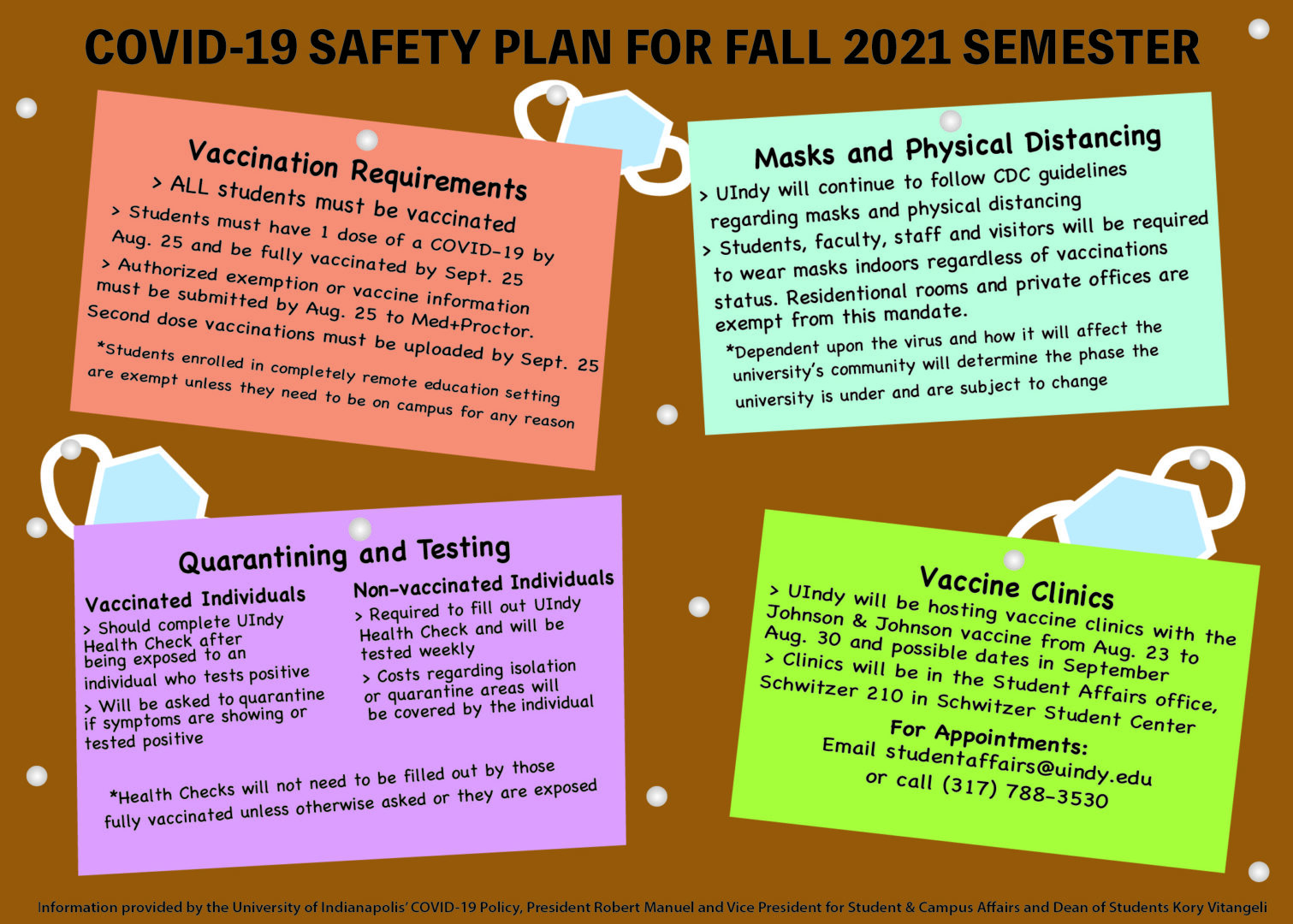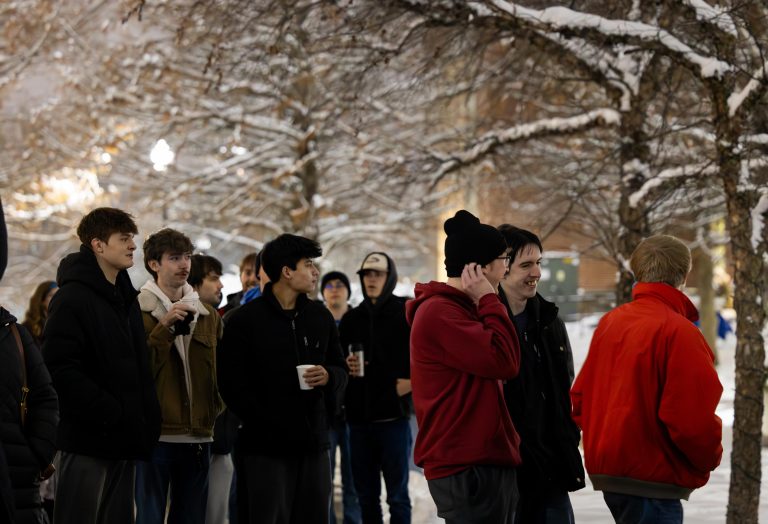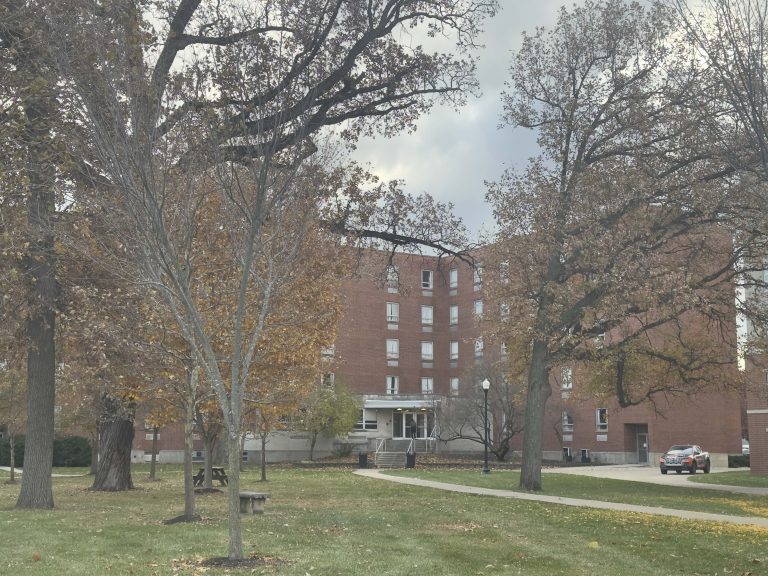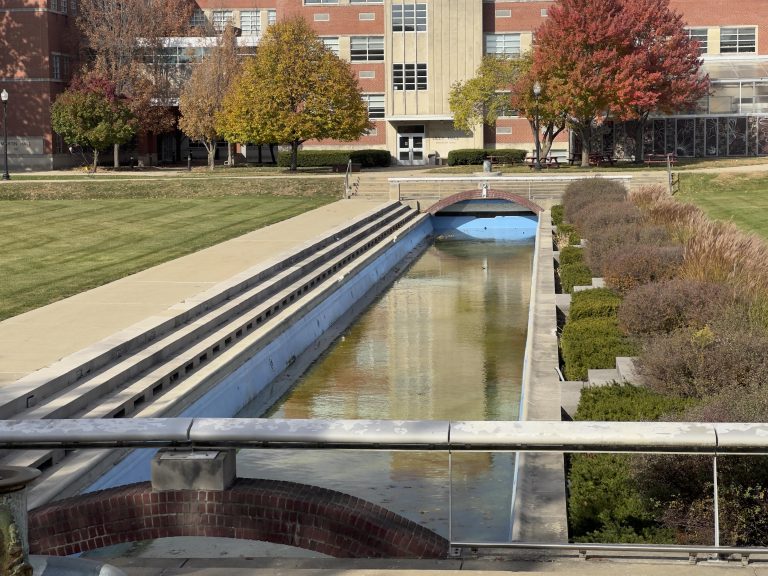University of Indianapolis President Robert Manuel announced in an email at the beginning of August changes to UIndy’s COVID-19 policies. As of Aug. 2, all individuals on campus are required to wear masks indoors regardless of vaccination status, according to Manuel’s email. In a separate email, Manuel said that all students on campus are required to get the COVID-19 vaccine this fall as a response to the increase in COVID-19 infections and hospitalizations caused by the Delta variant. Students must submit evidence of having received at least one dose of the vaccine, or an authorized exemption for medical or religious reasons, by Aug. 25. Evidence of a second dose, for those receiving a two-dose vaccine, must be submitted by Sept. 25, according to the email. In an Aug. 12 email to faculty and staff, Manuel said that all university employees also must submit proof of vaccination or an authorized exemption.

According to Manuel, the recent vaccination mandate was necessary because, despite incentives, not enough students had been vaccinated to keep those on campus safe.
“We were working with the public health officers, and their sense of what we should do was incentivize people to get the vaccine, help them understand that, one, it’s good for their health, and two, it will allow us to have a community where the virus doesn’t spread,” Manuel said. “We can have the activities that we wanted to have rather than mandate. Getting closer to the opening of school and having put in a series of incentives—like the $500 book draw, some other sweepstakes that were there—we realized that the effect wasn’t happening [at] the level that we wanted it to.”
While most events on campus this school year will be in-person, including more than 90 percent of classes, according to Koru Vitangeli, vice president for student and campus affairs and dean of students, Manuel said the current COVID-19 policies on campus are constantly changing, in accordance with advice from the Centers for Disease Control and Prevention and other experts.
“We take our cues from the state public health office, from the federal government, the CDC, and from a series of faculty, staff and infectious disease doctors who are on our advisory committee to look at what our response to COVID-19 is….” Manuel said. “But the best course of action to keep as many people safe as we can is to review [policies] on a weekly basis and try to help everybody remember that we all want to get back to the same course of actions that we’ve had before. But we have to do that in a safe way.”
Vitangeli said that despite recent mandates, student activities will be as close as possible to the way they were before the pandemic. Welcome Week activities from previous years, such as the Playfair and movie showings in Key Stadium, will return, with alterations to comply with COVID-19 policies, according to Vitangeli, as will traditional weekend programming.
“I think they’ll be different and safe, but still have the same ultimate impact, which is trying to build community and have people get to know other people,” Vitangeli said. “One of the things we know happened last year, just out of the sheer fact of the change of COVID[-19] policies, was that individuals who were first-year students last year just really didn’t get to meet the number of people that you typically would meet during your freshman year. I think that really impacted folks in terms of feeling a sense of community and feeling like they knew their classmates.”
Students on campus, according to Vitangeli, have had great tolerance for policy changes and understand that tough decisions must be made to keep students safe.
“People have always done what they have to do to keep campus safe, even though we all might not like it. We all do it because we want to remain on campus. We don’t want to shut down and have to go [virtual] again,” Vitangeli said. “I have from the very beginning been impressed with the way that UIndy students have shown resilience, have complied with the policies.”
According to Vitangeli, vaccine clinics for those on campus will run through Aug. 30, and possibly more clinics in Sept. Students will have the opportunity to get vaccinated during move-in week and the first week of classes, Vitangeli said, and testing will be available for those who have chosen not to get vaccinated.






